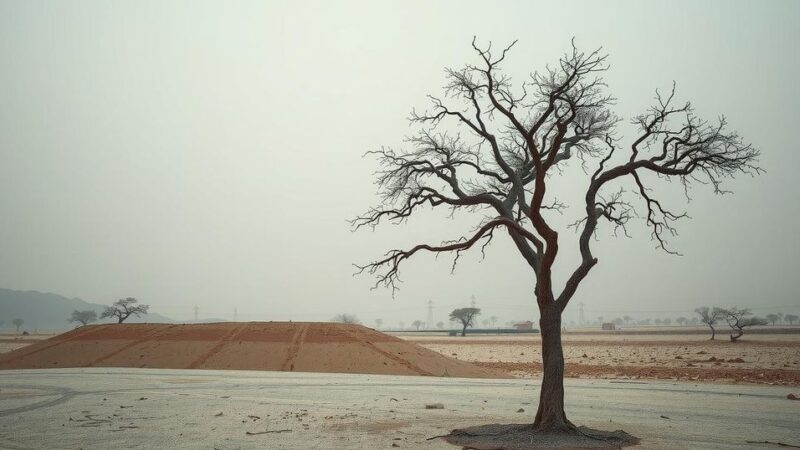The United States has offered to expand the Lobito railway project as an incentive for peace talks between the Democratic Republic of Congo (DRC) and Rwanda. However, Rwanda appears to be stepping back from negotiations. Senior diplomat Molly Phee highlighted the ongoing conflict involving the M23 Movement and concerns surrounding Rwanda’s military actions and regional interests. The U.S. is also addressing human rights issues in Ethiopia and political changes in Niger.
The United States has proposed enhancing its signature African infrastructure project as an incentive for a peace agreement between the Democratic Republic of Congo (DRC) and Rwanda. However, Rwanda appears to be retreating from these discussions, according to senior U.S. diplomat Molly Phee. The focus is on expanding the Lobito railway to facilitate the transport of minerals from southern DRC and Zambia to Angola’s Atlantic coast.
Molly Phee stated that there was a proposal for the development of a railway spur to stabilize eastern DRC, yet Rwanda seems hesitant to engage. She emphasized that a viable negotiation framework had been established, but Rwanda’s withdrawal from talks is concerning. The situation involves the March 23 (M23) Movement, which has gained control over parts of eastern DRC, exacerbating the ongoing humanitarian crisis.
The DRC government believes Rwanda is exploiting regional mineral wealth amid conflict, while Rwandan President Paul Kagame has asked for the removal of the Democratic Forces for the Liberation of Rwanda (FDLR), a group linked to the Hutu militia from the 1994 genocide. The U.S. has suggested a DRC-focused action against the FDLR, a proposal that has yet to be accepted.
Phee noted that after attempts to stabilize the situation, Rwanda and its proxies have extended their territorial control. She expressed frustration as Kagame chose not to participate in the Luanda summit aimed at resolving the conflict. In addition, U.S. President Biden’s administration has pivoted towards addressing crises in various regions, including conflicts in Ethiopia and Niger, thereby diverting focus from African initiatives.
Regarding the situation in Ethiopia, Phee highlighted the success of ending the Tigray conflict, which resulted in significant casualties. Nevertheless, she expressed worry over the Ethiopian government’s subsequent actions in other regions and the need for greater accountability concerning civilian safety. The United States has suspended trade benefits due to human rights concerns in Tigray, signaling a stringent approach to human rights abuses.
The military takeover in Niger represents another challenge, resulting in the termination of a significant military cooperation agreement with the United States. Phee provided insights into ongoing discussions where she expressed concerns regarding Niger’s potential uranium dealings with Iran, asserting that the U.S. remains willing to support Niger’s economic development through legitimate channels without compromising security interests.
The United States has been actively engaging in diplomatic efforts to stabilize conflicts in Africa, specifically regarding the troubled relationships between DRC and Rwanda. The expansion of the Lobito railway was introduced as a significant incentive for peace negotiations, aiming to hinder the escalating humanitarian crisis. The situation is further complicated by the history of conflict involving the M23 Movement and external actors, necessitating robust diplomatic strategies to foster regional stability and economic development while respecting human rights.
In summary, the potential expansion of the Lobito railway project offered by the United States as a peace incentive between the DRC and Rwanda faces challenges due to Rwanda’s withdrawal from negotiations. The ongoing conflicts are exacerbated by territorial disputes and allegations of resource exploitation. The U.S. remains focused on addressing related humanitarian crises while navigating complex geopolitical relationships throughout the African continent, emphasizing the need for continued diplomatic engagement and accountability in conflict resolution.
Original Source: www.france24.com







